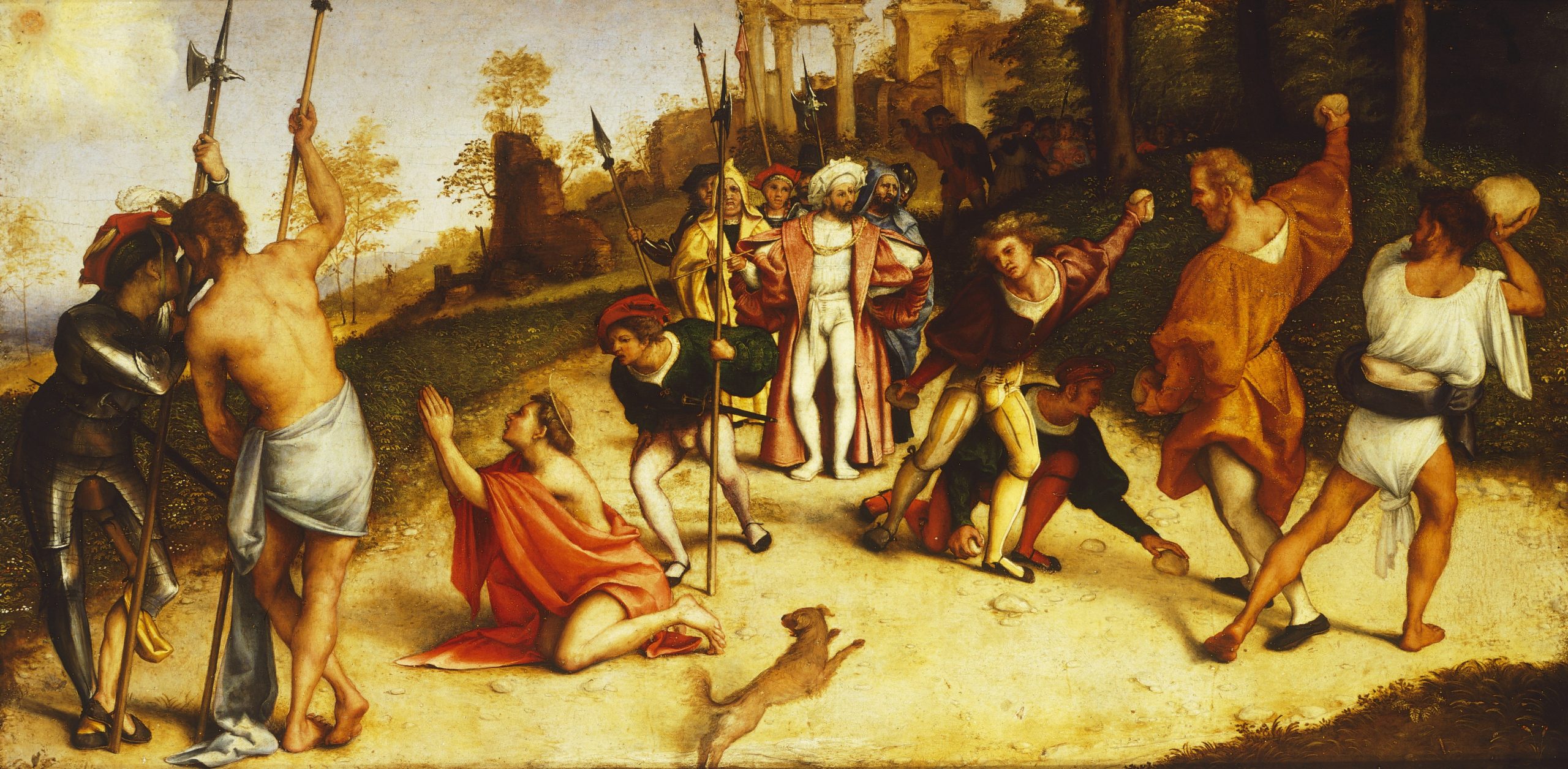Boxing Day: What it is, why we celebrate it, and how 'Good King Wenceslas' earned his name on the Feast of Stephen
Better known as Boxing Day, the origins of St Stephen’s Day are sinister and macabre, especially for poor wrens, as Aeneas Dennison discovers.


Exquisite houses, the beauty of Nature, and how to get the most from your life, straight to your inbox.
You are now subscribed
Your newsletter sign-up was successful
Cheerfully, British households celebrate the feast day of the first Christian martyr with a notable lack of religious observance. Better known as Boxing Day, St Stephen’s Day sees meets and family shoots across the country, eager sales shopping in town centres and, in many cases, quantities of cold turkey.
Historically, the day was marked dramatically: wren hunts avenged the saint, boys dressed as girls, unmarried men wore costumes made of straw and some — such as the Bohemian King Wenceslas in the popular carol — braved winter weather to give alms to the poor. This is the likeliest explanation for the name ‘Boxing Day’: the boxes in question were the alms boxes that carried the donations.
Who knows what St Stephen would make of it all? One of the first deacons of the Catholic Church, he was sentenced to execution after speaking out against the Jewish authorities in Jerusalem. According to legend, he fled the city and hid among bushes. With Jewish soldiers nearby, a chattering wren gave away his hiding place and Stephen was stoned to death.
For some, this provided a call to arms. The Irish decided to kill the wren in a battle of epic scale against ‘the king of birds’, now dubbed ‘the traitor of saints’. Indeed, across Ireland and the Isle of Man, a variation of the ‘hunting of the wren’ still takes place on St Stephen’s Day — or Wren Day. Traditionally, it involved killing one: catching and killing a wren was believed to usher in a year of prosperity. The bird was associated with the old year (unlike the robin, which symbolised the new year): its death made way for new beginnings.
This is a Boxing Day hunt of a different kind. In Ireland, a group of young boys went from door to door carrying the body of the dead wren in a basket or cage and selling its feathers, thought to bring good luck and prosperity to the household. Wives and mothers turned the boys away at their peril: beneath the doorstep of the least generous household, the featherless corpse was buried, guaranteeing a gruelling 12 months of bad luck.
"Wenceslas’s reputation for piety was so great that, when he challenged a rebel nobleman to single combat, two angels appeared, commanding the nobleman to repent and surrender"
Thankfully, there are no burials of this sort today. Instead, groups, usually of bachelors, become ‘wrenboys’, dressed in garish attire, often made of straw. They march through villages, singing, playing instruments and carrying a pole, on top of which is a wren (a model or a stuffed one), seeking donations of money, food and drink along the route. In some areas, Wren Day was marked by boys dressing as girls, echoing Boxing Day pantomimes.
However, it is Good King Wenceslas from which most of us learn about St Stephen’s Day. On the feast of St Stephen, according to the Victorian hymn-writer John Mason Neale, Wenceslas set out to take food and wine to a ‘poor man’ seen ‘gath’ring winter fuel’.
Exquisite houses, the beauty of Nature, and how to get the most from your life, straight to your inbox.
Wenceslas was, in fact, not a king, but the reigning Duke of Bohemia in the 10th century. Little is known about him beyond his piety and his grisly death — his brother, Boleslav, reportedly ran him through with a lance after fellow conspirators had stabbed him many times. This act of fratricide ensured the martyrdom of Wenceslas, with a cult arising in Bohemia and England soon after his death.
There are no historical grounds for Mason Neale’s story, but Wenceslas’s reputation for piety was so great that, when he challenged a rebel nobleman to single combat, two angels appeared, commanding the nobleman to repent and surrender, which he promptly did.
Across the world, Christians celebrate the Feast of St Stephen. In Finland, families ride in horse-drawn sleighs and in Serbia, where he is the patron saint, fireworks, parades and drinking games for men mark the holiday.
We might take a leaf out of Wenceslas’s book in an act of kindness — or perhaps risk a dead wren buried by the door.

The 100 greatest cathedrals in Europe, as picked by Simon Jenkins
Simon Jenkins gives himself a daunting task with his latest book, Europe's 100 Best Cathedrals (Viking, £30), which does no
Country Life is unlike any other magazine: the only glossy weekly on the newsstand and the only magazine that has been guest-edited by His Majesty The King not once, but twice. It is a celebration of modern rural life and all its diverse joys and pleasures — that was first published in Queen Victoria's Diamond Jubilee year. Our eclectic mixture of witty and informative content — from the most up-to-date property news and commentary and a coveted glimpse inside some of the UK's best houses and gardens, to gardening, the arts and interior design, written by experts in their field — still cannot be found in print or online, anywhere else.
